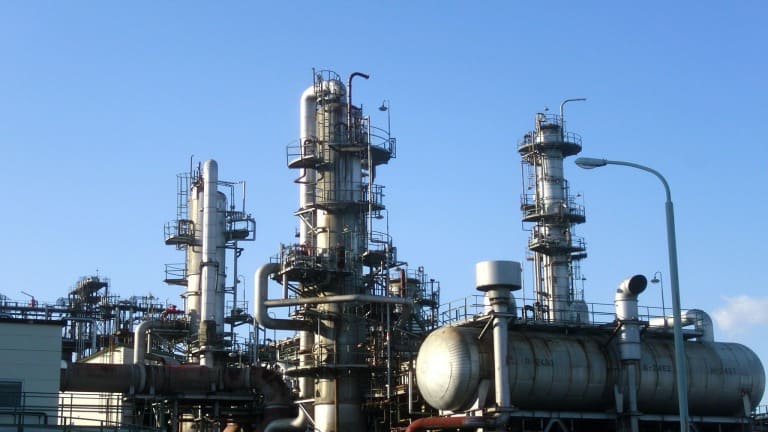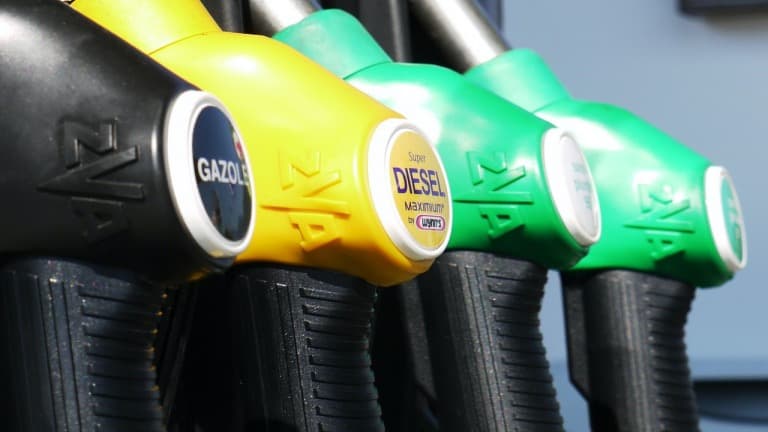Regardless of whether the construction is meant for a new home, for building a new motorway, or for the construction of a swanky new office in town, construction sites are often places that are not only noisy; but also dusty. Oftentimes, it is common that these noises and dust are inevitable due to the heavy equipment needed for the construction project to get anywhere at all.
Similarly, motor fuels are an essential item to all construction firms simply because they are the lifeblood of such heavy equipment. Additionally, if your site requires the use the off-road equipment, you would have to especially consider Off Road Diesel Delivery to fuel them. Motor fuels cannot be done away with and must be considered when accounting for how profitable and cost-effective each project undertaken by the company is.
Despite a steady decline in the price of oil over the past three years as a result of the prolonged boom in oil production leading to a surplus of oil supplies, this doesn’t negate how the cost of motor fuels can still have a significant impact on the profitability of a construction company. It should then come as no surprise that the most profitable companies are also the ones that are able to accurately control and monitor their fuel costs. This is all the more so if the company has its own on-site fuelling area which will require the fuel storage tanks to be regularly replenished.
Achieving the greatest level of optimal fuel use and cost may not be an easy task. It is hence wise for construction companies to engage the services of providers who have proven to be adept in fuel management in order to control their fuel costs. Read on for some areas which must be noted when monitoring your fuel use.
1. Fuel Supply
There is usually great pressure faced by construction companies to prevent running out of fuel during a project while streamlining and purchasing fuel at the optimal price. Challenges may come when trying to integrate older fuel-supply systems with more high-tech fuel management software or systems.

These include having to properly implement an automated tank monitoring system which provides operators with access to live fuel usage and cost of fuel, fuel-management solutions that allow companies with their own fueling operations to manage these operations, as well as finding ways to reduce costs as a whole through sourcing for cheaper suppliers and optimizing inventory management to lower storage costs. Together, these lead to an increase in profits.
Moreover, it is essential that accurate fuel-inventory levels are communicated to management or personnel involved in procurement as fuel depletion is costly and can be disruptive to the overall timeline for a construction project. Communication is key but is often also lacking. This results in tedious fuel-inventory reporting processes which may lag behind real-time data. Eventually, this could result in fuel depletion, inefficiencies in procurement, and overall cause a delay to the project.
2. Crisis Management Plans
By having crisis management plans such as an alarm management service in place, companies are able to minimize the environmental risks while also reducing maintenance costs. This is done via having insights into the ongoings inside the fuel-storage tanks, something of paramount importance if a company has its own onsite fuelling operations where fuel must be replenished regularly.
If such a plan is not in place, there could be a possibility of overfills or undetected leaks which could result in large fines and large-scale environmental damage which is more often than not, very costly to clean up. Moreover, negative publicity could arise as a result of leaks or spills, causing irreversible damage to a company’s reputation to consumers and industry partners alike. With reputation taking a long time to build up, it is much more cost-efficient, in the long run, to spend on alarm systems when compared to risking a company’s reputation by saving on mitigation measures such as alarms and crisis plans.
3. Theft of fuel
If a construction company has on-site fuelling operations, there will always be the risk of fuel theft; be it by employees or by outsiders. By having live data on inventory levels and usage habits, management is able to account for these variables and make decisions best for the company’s bottom line.
Accounting for the possibility of fuel theft, an automated fuel-tracking program should be put in place to mitigate losses caused by the wastage or improper use of fuel. The program ought to be able to flag suspicious transactions which deviate from the norm, or if fuel is being used outside of normal working hours in the construction site as this could well be an indicator that fuel theft is occurring. This helps to do away with the need to guess at expenditures over any time period and is a reliable method of identifying theft, as well as helping to identify possible mitigating factors which can be put in place to prevent further theft of fuel by employees or by outsiders.
4. Equipment efficiency
The company may wish to look into purchasing machinery that is more fuel-efficient. As technology progresses, older machinery is likely to consume more fuel for the same amount of output compared to newer machinery.

Further, using a higher quality of fuel may also lead to higher cost-savings in the long run. By using higher quality fuel, cost savings occur as there is likely to be a greater mile per gallon of fuel consumed along with reduced maintenance cost due to heavy usage of the machinery’s filters.
Another step to consider would be using better quality filtration systems in the fuel storage tanks, to ensure that contaminants are not present in the fuel when it enters the machinery. This contributes to a lowered machinery maintenance cost, as well as gives you a better fuel consumption to output ratio.
Conclusion
With fuel supply being the lifeblood of every construction company, it is critical to ensure that fuel is readily available and that supply is not depleted since fuel is what keeps the machinery and heavy equipment such as cranes and bulldozers running.
Yet, having an adequate fuel supply is just the tip of the iceberg. For a construction company to succeed in fuel management, it must also account for crisis mitigation measures, observe the trends for suspicious fuel usage to minimize fuel theft, and ensure that maintenance costs for equipment are kept low by having the most efficient equipment available.
Having read this article, make sure to pay attention to these areas of concern, and your profitability is sure to rise.
